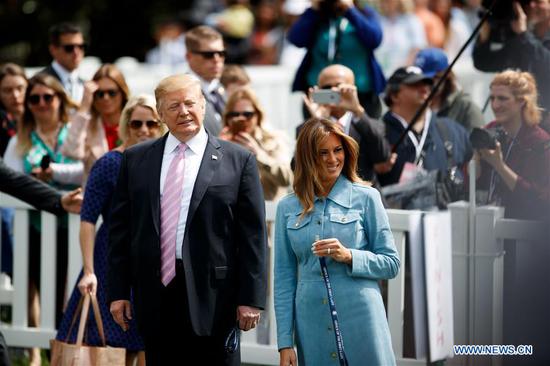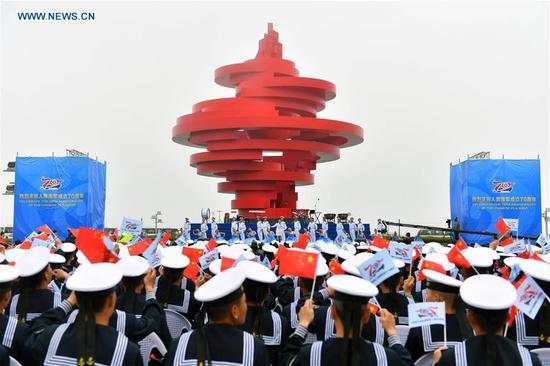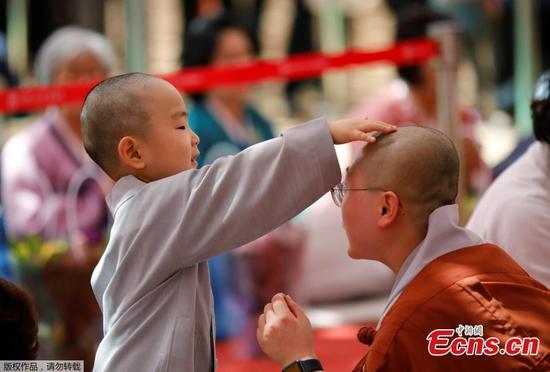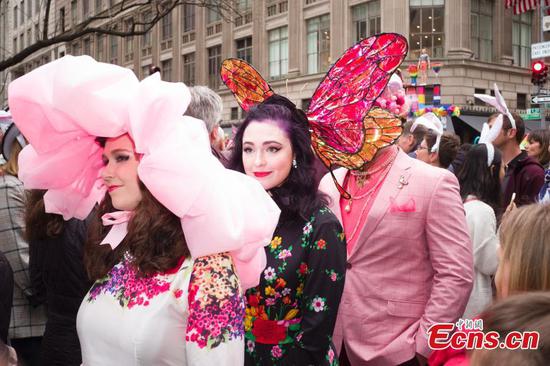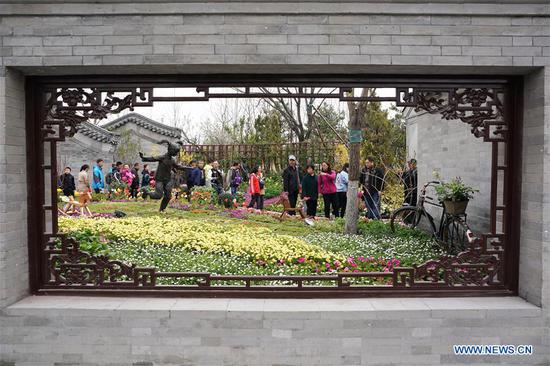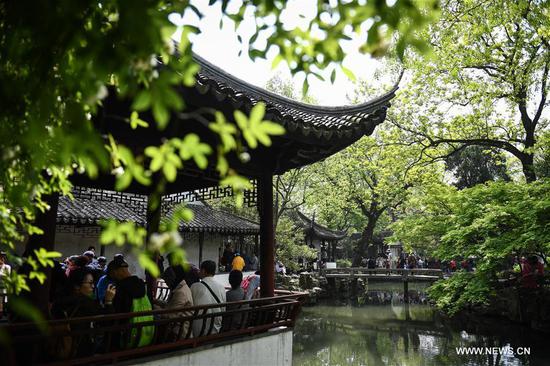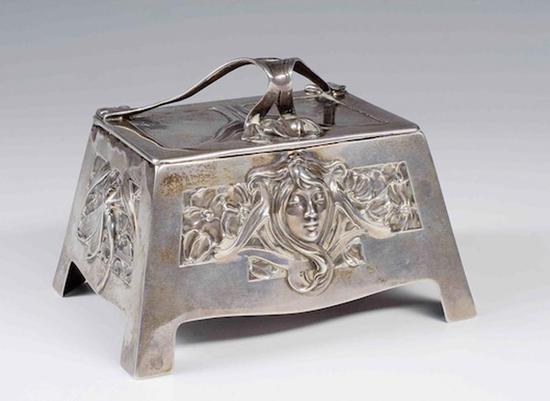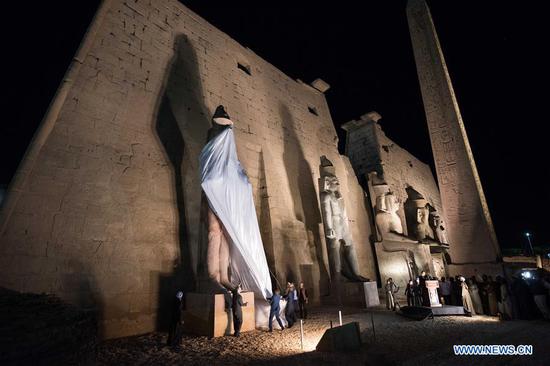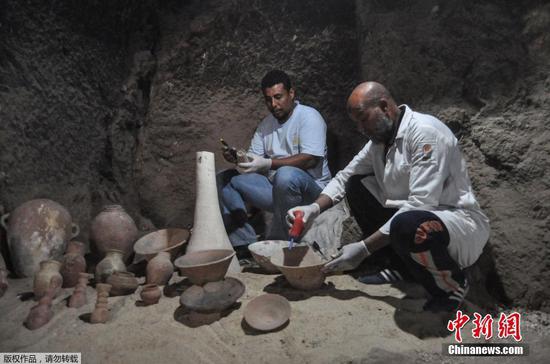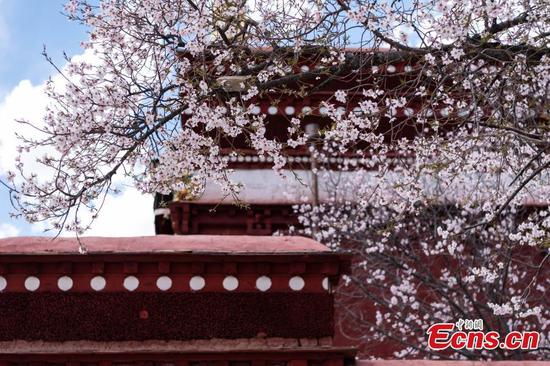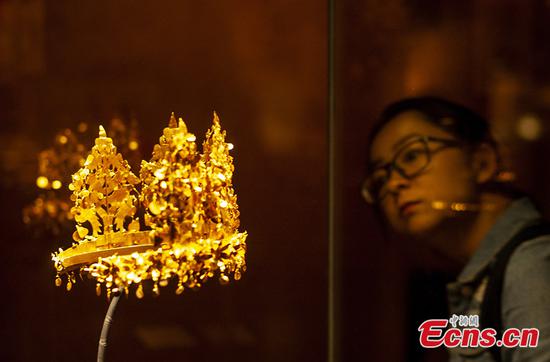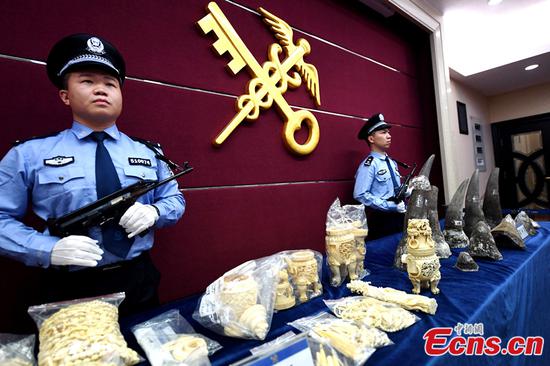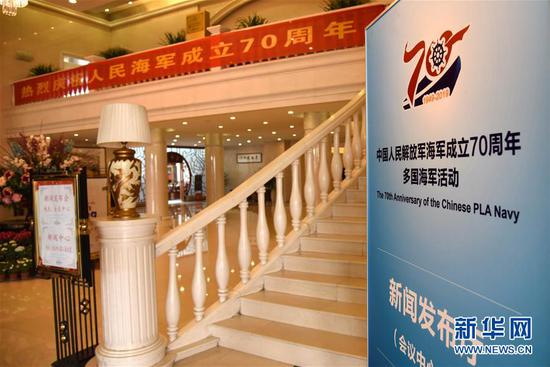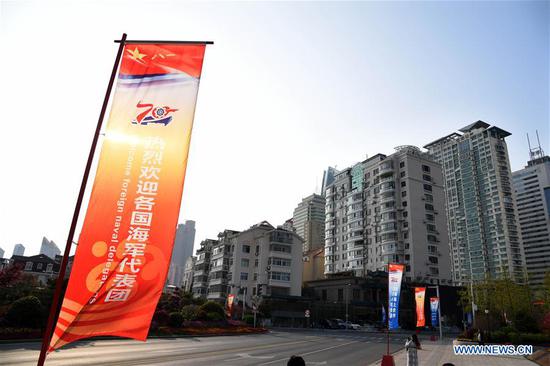First appearance
Finding a wall on which to work is the first step for a graffiti artist. For 10 years, Chen Yang, 27, from Jiaxing, Zhejiang, has ridden his electric bicycle around the city to locate suitable sites.
He prefers abandoned buildings awaiting demolition. Sometimes, he paints over an existing work, declaring such an act a "declaration of war".
"If you think others' work is not good enough, you can cover it with your own painting, but you need to do a better job. You need to think hard, and your art has to be more creative. The competitive element is the fun part of street art," he said.
Ye Shu, a Beijing street artist, said graffiti first appeared in the city at the end of the 1990s. In 2010, he and his team, Abs, started to paint graffiti on walls along Jingmi Road in Chaoyang district.
The walls along the road, which extend for more than 1 kilometer, are now almost all covered with colorful and funky graffiti works. The team's work can also be found in Chaoyang's 22 Art District, a new graffiti hotspot.
In 2017, walls along Jiulongshan road in this art district were painted by street artists from around the world.
The 798 Art District, a popular area showcasing contemporary Chinese art, is also home to graffiti. Ye said street artists have to ask the management team for permission before painting on the walls in the zone.
Writing and drawing are major forms of graffiti. Artists write letters and words with spray paint, while drawing is aimed at creating patterns. There is also commercial graffiti, with artists being paid by companies to create work for them.
Some brands who want to connect with the younger generation invite graffiti artists to work on designs for them. Zheng's team decided to form a company at the end of 2016 to take commissions from brands.
All four members of the team are married and have children. "We need to take responsibility for our families, and our graffiti skills help us to design works that showcase our strengths in painting about traditional Chinese culture," said Zheng, who is the company's CEO.
The four have been creating graffiti since they graduated from college.
They take a two-month break from design work every year, devoting themselves to creating graffiti on the streets instead. Last year, they staged the Golden Flow graffiti contest in Ningbo for new street artists, which attracted a dozen groups from China and about 30 from other parts of Asia.
Using the profits they made from running the company, they declined sponsorship for the contest, enabling the event to represent "pure street art".
Zheng said, "When organizing the competition, we encountered many surprises, but they were all good ones, such as the help we received from a hotel and a mall that provided the venue."
Other cities have made approaches to stage the contest, but the team has rejected them.
"Graffiti is the love of our lives and has brought us a lot. We just want to do something in return," Zheng said.
"My parents didn't want me to be a street artist, but they have gradually accepted what I do and sometimes they feel proud of the street art that I paint."
Chen, from Jiaxing, founded his own studio in the city in 2017, taking orders to paint walls for clients such as restaurants or bars nationwide. He also works as an illustrator.
"Graffiti teaches me to think freely, and I want to try to combine it with an art installation or toys," he said.
Chen added that he wished there was a market for street artists' work that would enable them to support themselves.
"We don't have a mature system to sell works of graffiti, or enough agents to connect the artists with galleries. Cultivating the street art market to attract more people to take part in graffiti work would make for a sustainable ecosystem," he said.
Ye, the Beijing street artist, sold a two-square-meter graffiti work for 20,000 yuan. "It's not a deal that you can strike often," he said.
In 2011, Ye's team, founded in 2007, won the Wall Lords graffiti contest in Chengdu, Sichuan. In 2012, it launched its own spray paint store in the 798 Art District in Beijing.
Spray paints are imported and sell for about 40 yuan a can. Since 2012, China has had its own brand of professional paints, which are half the price of imported products. The country's paints are now available in Europe and have become popular there, Ye said.
The name of the team's shop is"400ml", which refers to the volume of a regular spray paint can. Ye said the shop makes little profit and the team takes commercial graffiti commissions to make a living and to run the business. It has collaborated with many major sports, fashion and car brands to design graphics, clothing and sneakers.
Ye said that about two years ago he noticed that graffiti contests were being staged in many cities, but most of them were hosted by retail brands or real estate companies. "Recently, the number of events has fallen, but the quality has risen," he added.










